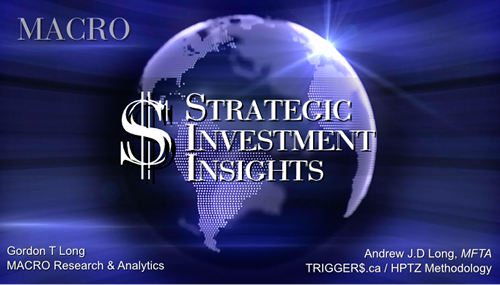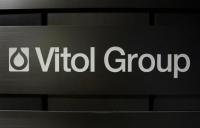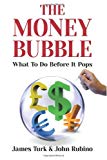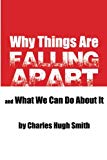|
JOHN RUBINO'SLATEST BOOK |
||||||||||||||||||||||||||||||||||||||||||||||||||||||||||||||||||||||||||||||||||||||||||||||||||||||||||||||||||||||||||||||||||||||||||||||||||||||||||||||||||||||||||||||||||||||||||||||||||||||||||||||||||||||||||||||||||||||||||||||||||||
"MELT-UP MONITOR " Meltup Monitor: FLOWS - The Currency Cartel Carry Cycle - 09 Dec 2013 Meltup Monitor: FLOWS - Liquidity, Credit & Debt - 04 Dec 2013 Meltup Monitor: Euro Pressure Going Critical - 28- Nov 2013 Meltup Monitor: A Regression-to-the-Exponential Mean Required - 25 Nov 2013
|
"DOW 20,000 " Lance Roberts Charles Hugh Smith John Rubino Bert Dohman & Ty Andros
|
HELD OVER
Currency Wars
Euro Experiment
Sultans of Swap
Extend & Pretend
Preserve & Protect
Innovation
Showings Below
"Currency Wars "
|
"SULTANS OF SWAP" archives open ACT II ACT III ALSO Sultans of Swap: Fearing the Gearing! Sultans of Swap: BP Potentially More Devistating than Lehman! |
"EURO EXPERIMENT"
archives open EURO EXPERIMENT : ECB's LTRO Won't Stop Collateral Contagion!
EURO EXPERIMENT: |
"INNOVATION"
archives open |
"PRESERVE & PROTE CT"
archives open |

Wed. Oct. 7th, 2015
Follow Our Updates
onTWITTER
https://twitter.com/GordonTLong
AND FOR EVEN MORE TWITTER COVERAGE
ANNUAL THESIS PAPERS
FREE (With Password)
THESIS 2010-Extended & Pretend
THESIS 2011-Currency Wars
THESIS 2012-Financial Repression
THESIS 2013-Statism
THESIS 2014-Globalization Trap
THESIS 2015-Fiduciary Failure
NEWS DEVELOPMENT UPDATES:
FINANCIAL REPRESSION
FIDUCIARY FAILURE
WHAT WE ARE RESEARCHING
2015 THEMES
SUB-PRIME ECONOMY
PENSION POVERITY
WAR ON CASH
ECHO BOOM
PRODUCTIVITY PARADOX
FLOWS - LIQUIDITY, CREDIT & DEBT
GLOBAL GOVERNANCE
- COMING NWO
WHAT WE ARE WATCHING
(A) Active, (C) Closed
MATA
Q3 '15- Chinese Market Crash
(A)
Q3 '15-
GMTP
Q3 '15- Greek Negotiations
(A)
Q3 '15- Puerto Rico Bond Default
MMC
OUR STRATEGIC INVESTMENT INSIGHTS (SII)

NEGATIVE-US RETAIL
NEGATIVE-ENERGY SECTOR
NEGATIVE-YEN
NEGATIVE-EURYEN
NEGATIVE-MONOLINES
POSITIVE-US DOLLAR
ARCHIVES
| OCTOBER | ||||||
| S | M | T | W | T | F | S |
| 1 | 2 | 3 | ||||
| 4 | 5 | 6 | 7 | 8 | 9 | 10 |
| 11 | 12 | 13 | 14 | 15 | 16 | 17 |
| 18 | 19 | 20 | 21 | 22 | 23 | 24 |
| 25 | 26 | 27 | 28 | 29 | 30 | 31 |
KEY TO TIPPING POINTS |
| 1- Bond Bubble |
| 2 - Risk Reversal |
| 3 - Geo-Political Event |
| 4 - China Hard Landing |
| 5 - Japan Debt Deflation Spiral |
| 6- EU Banking Crisis |
| 7- Sovereign Debt Crisis |
| 8 - Shrinking Revenue Growth Rate |
| 9 - Chronic Unemployment |
| 10 - US Stock Market Valuations |
| 11 - Global Governance Failure |
| 12 - Chronic Global Fiscal ImBalances |
| 13 - Growing Social Unrest |
| 14 - Residential Real Estate - Phase II |
| 15 - Commercial Real Estate |
| 16 - Credit Contraction II |
| 17- State & Local Government |
| 18 - Slowing Retail & Consumer Sales |
| 19 - US Reserve Currency |
| 20 - US Dollar Weakness |
| 21 - Financial Crisis Programs Expiration |
| 22 - US Banking Crisis II |
| 23 - China - Japan Regional Conflict |
| 24 - Corruption |
| 25 - Public Sentiment & Confidence |
| 26 - Food Price Pressures |
| 27 - Global Output Gap |
| 28 - Pension - Entitlement Crisis |
| 29 - Central & Eastern Europe |
| 30 - Terrorist Event |
| 31 - Pandemic / Epidemic |
| 32 - Rising Inflation Pressures & Interest Pressures |
| 33 - Resource Shortage |
| 34 - Cyber Attack or Complexity Failure |
| 35 - Corporate Bankruptcies |
| 36 - Iran Nuclear Threat |
| 37- Finance & Insurance Balance Sheet Write-Offs |
| 38- Government Backstop Insurance |
| 39 - Oil Price Pressures |
| 40 - Natural Physical Disaster |
Reading the right books?
No Time?We have analyzed & included
these in our latest research papers Macro videos!
OUR MACRO ANALYTIC
CO-HOSTS
John Rubino's Just Released Book
Charles Hugh Smith's Latest Books
Our Macro Watch Partner
Richard Duncan Latest Books
MACRO ANALYTIC
GUESTS
F William Engdahl
OTHERS OF NOTE
TODAY'S TIPPING POINTS
|
Have your own site? Offer free content to your visitors with TRIGGER$ Public Edition!
Sell TRIGGER$ from your site and grow a monthly recurring income!
Contact [email protected] for more information - (free ad space for participating affiliates).
HOTTEST TIPPING POINTS |
Theme Groupings |
||
We post throughout the day as we do our Investment Research for: LONGWave - UnderTheLens - Macro
|
|||
|
MOST CRITICAL TIPPING POINT ARTICLES TODAY
|
|
||
CREDIT CONTRACTION Commodity Trading Giants Unleash Liquidity Scramble, Issue Record Amounts Of Secured DebtSubmitted by Tyler Durden on 10/06/2015 - 21:54
In a furious race to shore up as much liquidity as possible, Glencore - which a month ago announced a dramatic deleveraging plan - and its peers have been quietly scrambling to raise billions in secured funding. Case in point none other than Glencore's biggest competitor and the largest independent oil trader in the world, Swiss-based, Dutch-owned Vitol Group, whose Swiss unit Vitol SA earlier today raised a record $8 billion in loans. Glencore Explains What Would Happen If It Is Downgraded To JunkSubmitted by Tyler Durden on 10/06/2015 - 15:43
"In the event of a downgrade by Standard & Poor’s and/or Moody’s from current ratings to the level(s) immediately below... there are $4.5 billion of bonds outstanding, where a 125bps margin step-up would apply, in the event that the bonds were rated sub-investment grade by either major ratings agency." |
16 - Credit Contraction II | ||
Submitted by Tyler Durden on 10/06/201 Commodity Trading Giants Unleash Liquidity Scramble, Issue Record Amounts Of Secured DebtEarlier today, in its latest attempt to restore confidence in its brand and business model after suffering a historic stock price collapse, Glencore - whose CDS recently blew out to a level implying a 50% probability of default - released a 4 page funding worksheet which was meant to serve as a simplified summary of its balance sheet funding obligations and lending arrangements to equity research analysts who have never opened a bond indenture, and which among other things provided a simplified and watered-down estimate of what could happen if and when the company is downgraded to junk. Meanwhile, in a furious race to shore up as much liquidity as possible, Glencore - which a month ago announced a dramatic deleveraging plan - and its peers have been quietly scrambling to raise billions in secured funding. Case in point none other than Glencore's biggest competitor and the largest independent oil trader in the world, Swiss-based, Dutch-owned Vitol Group, whose Swiss unit Vitol SA earlier today raised a record $8 billion in loans. It is not alone. As Bloomberg reports, another name profiled previously here, privately-held (but with publicly-traded debt) Trafigura "won improved terms on a $2.2 billion loan refinancing deal on Oct. 1 via a group of 28 banks. Swiss commodity traders Gunvor Group Ltd. and Mercuria Energy Group Ltd. are also marketing credit facilities totaling $2 billion."
In short - a race against time to pledge as much unencumbered collateral as possible for future funding needs, because as every CEO knows you raise capital when you can, not when you have to. Yet this is odd, because even as the companies hold investor meetings and publicly comfort investors that they are adequatly funded and see no need for a liquidity-raising scramble, that's precisely what the world's commodity traders are doing. Bloomberg's take was more optimistic: "The transactions show banks are still eager to loan money to commodity traders even after debt concerns caused by wild swings in Glencore’s stock and bond prices."
According to Bloomberg, Vitol’s record credit facilities from a group of 57 banks were increased by a third after the initial $6 billion sought by the trading house was oversubscribed by $2.7 billion, the Rotterdam-based company said in a statement. The facilities, refinancing a debt package signed 12 months ago, are the biggest in the firm’s 49-year history, a Vitol spokeswoman in London said. Then comes even more spin:
Actually analysts (at least credit) understand the business of trading houses very well; what Bloomberg's reporters don't seems to understand, however, is the principle of muturally assured megaleverage destruction, or the implied threat for a company's secured lending syndicate that a borrower which already has billions of exposure to banks has all the leverage in demanding even more debt. After all, should Vitol fail, it would lead to a cascade of bank failures as all the banks that have lent money to the giant commodity trader are forced to charge off their exposure, in the process leading to serial defaults among undercapitalized financial institutions. It is these institutions whose credit officers underwrote the loans, that are the ones who "don't understand the business of trading houses" because based on the recent collapse in publicly traded securities, they never modelled what happens to cash flows in a world in which the price of oil, copper, zinc, aluminum or other commodities, suffer a 50%+ plunge in prices.
As they well should, and in order to avoid answering, the banks are perfectly happy to throw a little more good money after lots of bad money in order to avoid remarking their entire exposure to the sector to something resembling fair value. But the day of remarking is coming: as Bernstein calculates, commodity traders have raised at least $125 billion of debt, of which about $75 billion is loans. In other words, there is about $75 billion in secured debt, collateralized by either inventory and/or receivables collateral whose value has cratered in the past year, and as a result the LTV on the secured loans has soared. It is this that is prompting the panicked banks to be more eager to provide funds to the suddenly distressed energy-trading sector than even the borrowers themselves. And after all, if the banks do blow up, there is always the taxpayer-funded bailout as a last reserve. And here is a pop quiz to either analyst, or Bloomberg writers who don't "understand the the business of trading houses" - if you issue secured debt to shore up liquidity as a result of what is fundamentally a massively overlevered capital structure, does the pro forma debt increase or decrease. This is not a trick question. The good news for the Vitols of the world is that by pledging even more of their unencumbered assets to banks, they buy themselves a few more months, or quarters, of liquidity to pay down upcoming maturities and interest. Which is what Glencore did with its "doomsday" plan in early September... a plan which calmed the stock for all of two weeks before investors saw right through it for what it was: a desperate scramble to put lipstick on a declining-stage supercycle pig. In the meantime, the end result is this: companies that are even more levered to commodity prices in a world in which at last check commodity prices, a proxy for China's economy, are sliding. Which, incidentally, was our thesis in March of 2014 when we said that buying Glencore CDS is the best way to trade China's hard landing. This is precisely what happened. Which is why both the companies, and their lending banks, better pray that commodity prices pick up in the coming weeks and months, because for the Vitols, the Glencores, the Trafiguras, the Mercurias and so on, that is all that matters. Ironically, by levering up even more, they bought themselves some time now, but if and when the next leg down in the commodity supercycle takes place, the pain will only be that much greater.
|
|||
Submitted by Tyler Durden on 10/06/2015 - 15:43
Glencore Explains What Would Happen If It Is Downgraded To JunkAs part of its ongoing scramble to defend itself against "speculators" and concerns about its balance sheet, earlier today Glencore released a 4 page "funding worksheet" detailing all of its obligations. Among the highlights was Glencore's disclosure of total available liquidity as of this moment, which the firm reported to be materially above its June level of $10.5 billion:
It also presented its sources of funding among which the well-known $31.1 billion in bonds, as well as $20 billion in short-term funding split between a $15.25 revolver (of which a "substantial portion" is undrawn), $1.2 billion in AR/Inventory secured funding, and $3.4 billion in bilateral bank facilities. Glencore was quick to point out the gullibility of its bank lenders: "No financial covenants, no rating events of default or rating prepayment events, no material adverse change events of default or material adverse change prepayment events." Next Glencore details the terms of its notes and cross-guarantees which it lays out as follows:
Glencore also notes the $17.9 billion in Letter of Credit commitments it had outstanding as of June 30:
An interesting tangent is when Glencore discusses it readily marketable inventories:
Which brings up the very interesting question: with Glencore touting its revolver availability, and its various secured facilities, just how is Glencore marking the fair value of its inventories, because a ton of copper a year ago as collateral is worth just a little bit more than a ton of copper currently. We are confident Glencore's banks are aware of this. But finally, and most importantly, Glencore presents what it believes would happen if it is downgraded from Investment Grade to Junk. This is what it says:
Which reminds us of the waterfall analysis being shared around in the weeks before the AIG downgrade unleashed a series of events that ultimately led to the insurance company's bail out. It too presented glowing picture of the potential risks. In the end it was very deficient. One can only hope that Glencore has learned the lesson of never misrepresenting the worst case scenario. Full letter below (link) � |
|||
| MOST CRITICAL TIPPING POINT ARTICLES THIS WEEK - Oct 4th, 2015 - Oct 10th, 2015 | |||
| BOND BUBBLE | 1 | ||
| RISK REVERSAL - WOULD BE MARKED BY: Slowing Momentum, Weakening Earnings, Falling Estimates | 2 | ||
| GEO-POLITICAL EVENT | 3 | ||
| CHINA BUBBLE | 4 | ||
| JAPAN - DEBT DEFLATION | 5 | ||
EU BANKING CRISIS |
6 |
||
| CREDIT CONTRACTION | 16 - Credit Contraction II | ||
GLENCORE TIMELINE
|
|||
| TO TOP | |||
| MACRO News Items of Importance - This Week | |||
GLOBAL MACRO REPORTS & ANALYSIS |
|||
US ECONOMIC REPORTS & ANALYSIS |
|||
| CENTRAL BANKING MONETARY POLICIES, ACTIONS & ACTIVITIES | |||
| Market | |||
| TECHNICALS & MARKET |
|
||
| COMMODITY CORNER - AGRI-COMPLEX | PORTFOLIO | ||
| SECURITY-SURVEILANCE COMPLEX | PORTFOLIO | ||
| THESIS - Mondays Posts on Financial Repression & Posts on Thursday as Key Updates Occur | |||
| 2015 - FIDUCIARY FAILURE | 2015 | THESIS 2015 |  |
| 2014 - GLOBALIZATION TRAP | 2014 |  |
|
|
2013 2014 |
|||
FINANCIAL REPRESSION PAUL CRAIG ROBERTS PhD Talks About the Alarming Decline In Western Democracy FRA’s Gordon T Long talks financial repression and the decline in democracy with Paul Craig Roberts. Paul is the chairman of the institute for political economy, he was also the former assistant secretary of the US treasury for economic policy in the Reagan administration. “As far as I can tell not only has democracy departed the western world but also compassion empathy for others, morality integrity respect for truth justice fairness self-respect western civilization has become a hollow shell there is nothing left but greed and coercion and the threat of coercion”. He believes this outcome is based on the behavior and statements of the government and the public’s acceptance of it. Part of the reason the public doesn’t care, is due to a lack of information as about 90% of the American media is owned by 6 large mega corporations that manipulate the news. “The story that is told by the American media is Washington’s propaganda line and of course whatever the corporation’s propaganda line is and there is no challenge to either”. On the republican debates, Paul questions the aggressive stands that most of the candidates seemed to have towards foreign policy. He states that this stand will simply create distrust among nuclear wielding powers. “Every American president since John F Kennedy worked with the soviet leadership to diffuse the nuclear issue”. He says that this shift in culture across the candidates is a combination of both campaign finance and a shift in culture. “There’s no such thing as a free market in the United States, it requires many producers none of which can affect price…….look at the banks, the banks are so concentrated that they are too big to fail. How do you have capitalism if a failed enterprise doesn’t close down instead it is bailed out by the people or by the Federal Reserve printing money to buy its worthless portfolio. This not capitalism, there’s no capitalism here, this is an oligarchy!” “What has the government said that’s true? Think of anything, can you think of anything they’ve said that’s true? We know that the unemployment rate they’re reporting is false, inflation rate is false, and the gross domestic product is false. We know all of this, we know that Saddam Hussein did not have weapons of mass destruction, he did not have Al Qaeda connections, that Assad of Syria did not use chemical weapons. We know Russia did not invade Ukraine but they say this over and over and over. I can’t think of one thing that the government or corporate world has said in 20 years that’s true”.
|
10-05-15 | THESIS | |
2011 2012 2013 2014 |
|||
| THEMES - Normally a Thursday Themes Post & a Friday Flows Post | |||
I - POLITICAL |
|||
| CENTRAL PLANNING - SHIFTING ECONOMIC POWER - STATISM | THEME | ||
- - CORRUPTION & MALFEASANCE - MORAL DECAY - DESPERATION, SHORTAGES. |
THEME |  |
|
| - - SECURITY-SURVEILLANCE COMPLEX - STATISM | M | THEME | |
| - - CATALYSTS - FEAR (POLITICALLY) & GREED (FINANCIALLY) | G | THEME | |
II-ECONOMIC |
|||
| GLOBAL RISK | |||
| - GLOBAL FINANCIAL IMBALANCE - FRAGILITY, COMPLEXITY & INSTABILITY | G | THEME | |
| - - SOCIAL UNREST - INEQUALITY & A BROKEN SOCIAL CONTRACT | US | THEME | |
| - - ECHO BOOM - PERIPHERAL PROBLEM | M | THEME | |
| - -GLOBAL GROWTH & JOBS CRISIS | |||
| - - - PRODUCTIVITY PARADOX - NATURE OF WORK | THEME | MACRO w/ CHS |
|
| - - - STANDARD OF LIVING - EMPLOYMENT CRISIS, SUB-PRIME ECONOMY | US | THEME | MACRO w/ CHS |
III-FINANCIAL |
|||
| FLOWS -FRIDAY FLOWS | MATA RISK ON-OFF |
THEME | |
| CRACKUP BOOM - ASSET BUBBLE | THEME | ||
| SHADOW BANKING - LIQUIDITY / CREDIT ENGINE | M | THEME | |
| GENERAL INTEREST |
|
||
| STRATEGIC INVESTMENT INSIGHTS - Weekend Coverage | |||
|
SII | ||
|
SII | ||
|
SII | ||
|
SII | ||
| TO TOP | |||
Read More - OUR RESEARCH - Articles Below
Tipping Points Life Cycle - Explained
Click on image to enlarge
TO TOP
�
TO TOP








































